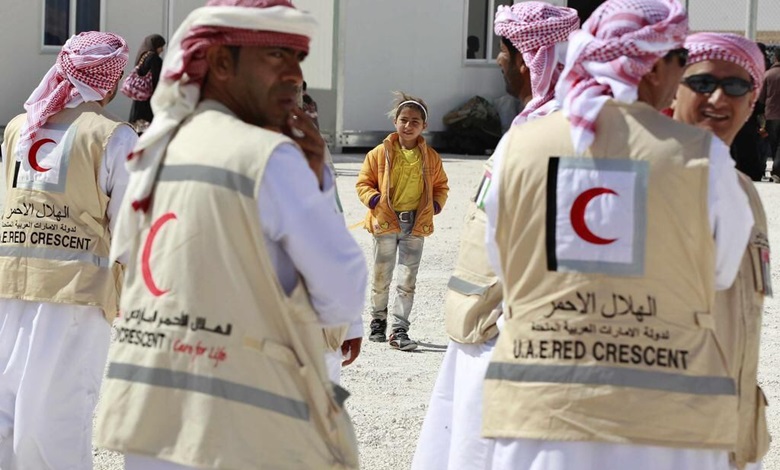The United Arab Emirates (UAE) has emerged as a global leader in humanitarian efforts, driven by a legacy of compassion and a commitment to making a positive impact worldwide. At the heart of this endeavor lies the vision of the UAE’s founder, Sheikh Zayed bin Sultan Al Nahyan, who prioritized humanitarianism as a foreign policy cornerstone.
Today, the UAE continues to strengthen its position as a global capital of philanthropy, providing urgent relief, supporting sustainable initiatives, and enhancing humanitarian leadership.
Sheikh Zayed’s Legacy
The UAE’s diplomacy in charitable work follows the visionary approach of its founder, Sheikh Zayed bin Sultan Al Nahyan. His commitment to giving and continuing charitable works laid the foundation for the country’s humanitarian leadership.
- Democratic Leader: Sheikh Zayed’s method of governance centered around regular majlises (open gatherings). In these sessions, everyone had a voice, fostering social cohesion and allowing the people’s will to directly influence policy decisions.
- Putting People First: His unwavering belief in putting people first laid the foundation for the thriving economy Abu Dhabi enjoys today. Reforms discussed in these majlis continue to shape the nation.
- Education and Healthcare: Sheikh Zayed’s contributions extended to education and healthcare. He established schools, hospitals, and infrastructure, ensuring the well-being of his people.
- Emancipation of Women: He championed women’s rights, emphasizing their role in society and promoting gender equality.
- Trade and Environment: Sheikh Zayed fostered trade and environmental conservation, recognizing the importance of sustainable development.
- Tolerance and Generosity: His legacy embodies values such as tolerance, benevolence, and generosity. These enduring principles continue to guide the UAE.
- Father of the Nation: Revered as the Waalid al-Ummah (Father of the Nation), Sheikh Zayed’s legacy remains an abiding gift to the UAE and its people.
Urgent Relief and Humanitarian Response
The UAE’s rapid response to crises is often the first international aid to reach affected regions. This agility reflects its dedication to alleviating suffering and addressing immediate needs.
Immediate Response from the UAE
- Global Appeal: When devastating crises strike, the United Nations (UN) immediately issues a global appeal for aid. The UAE swiftly mobilizes its resources to provide urgent assistance, evaluate risks, and ensure that no one is left behind.
- UN Country Team for the UAE: Among the key partners and first responders is the UN Country team for the UAE. This reflects the UAE’s ongoing commitment to providing humanitarian aid and supporting communities affected by disasters worldwide.
- International Humanitarian City (IHC): Located in Dubai, the IHC hosts multiple warehouses and storage facilities for UN agencies. Due to its favorable geographic proximity, the IHC plays a crucial role in supporting rapid responses to crises globally and facilitating humanitarian air bridges.
Earthquake Relief in Türkiye and Syria
- Devastating Earthquakes: In February of this year, Türkiye and Syria were struck by devastating earthquakes with a magnitude of 7.8. These earthquakes claimed thousands of lives and caused extensive destruction to homes and infrastructure.
- Direct Impact: Over 9 million people in Türkiye and at least 8.8 million people in Syria were directly impacted. Tens of thousands lost their lives, and thousands of buildings, including schools and hospitals, collapsed.
- UN’s Comprehensive Response: The UN in the UAE collaborated strategically to provide vital emergency relief. Airlifts were dispatched, carrying health kits, medical equipment, emergency relief items, and essential survival kits from multiple UN agencies, including WHO, UNHCR, WFP, and UNICEF.
Global Efforts during COVID-19
- Pioneering Response: When COVID-19 broke out, the UAE was one of the first countries to reach out and support global humanitarian initiatives. Its aid accounted for 80% of the international response to countries struggling with the pandemic.
- Medical Aid and Field Hospitals: The UAE sent a total of 2,154 tons of medical aid, ventilators, screening equipment, personal protection gear, and testing kits to 135 countries. Six field hospitals were set up in various nations, and one fully equipped mobile clinic was established.
- Humanitarian Air Bridges: The international organization’s warehouses in Dubai’s International Humanitarian City facilitated aid distribution to 117 countries.
- Support to WHO: The UAE provided in-kind aid worth USD 10 million to the World Health Organization (WHO).
The Fund of the United Arab Emirates: Homeland of Humanity
- Unified Effort: Established in March 2020, this fund unifies national efforts to combat COVID-19. Individuals and organizations can contribute in cash or kind through Emirates Red Crescent and other charities across the UAE.
- Arab Coordination Group: Abu Dhabi Fund for Development (ADFD) contributed to the Arab Coordination Group’s pledge of allocating USD 10 billion to help developing countries recover from pandemic-induced economic stagnation.
Beyond Arab Countries
The UAE extends its humanitarian efforts beyond its borders, with a particular focus on Arab countries facing natural disasters and wars.
The UAE’s leadership has institutionalized “humanitarian diplomacy” as part of its foreign policy. Initiatives such as the Office of Public and Cultural Diplomacy and the Soft Power Council underscore the UAE’s commitment to creating a global legacy in areas of intellectual capital, culture, development, and humanitarianism.
The UAE continues to strengthen its humanitarian leadership, consolidating its global position as a capital of goodness and humanitarian work. Its unlimited and continuous efforts in providing aid to various countries underscore its commitment to compassion and solidarity.














